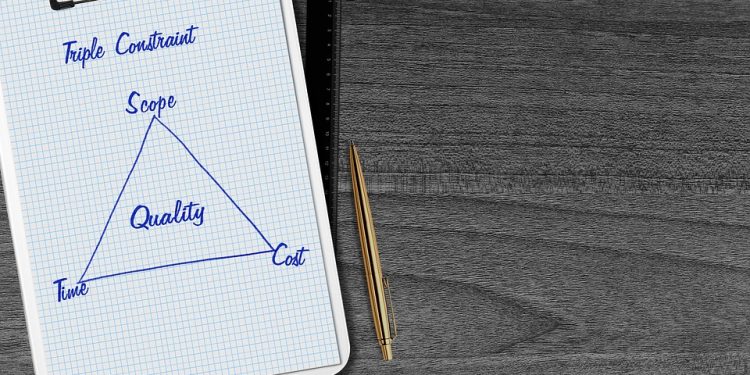Mastering Your Money: The Ultimate Guide to Budgeting Tools and Techniques
In today’s fast-paced world, managing your finances can be a daunting task. With so many expenses to keep track of and unexpected financial emergencies that can arise, it’s essential to have a solid budgeting plan in place. Luckily, there are a plethora of budgeting tools and techniques available to help you take control of your money and achieve financial freedom. In this comprehensive guide, we will explore the best budgeting tools and techniques to help you master your money and achieve your financial goals.
HTML Heading 1: Why Budgeting is Important
Before we dive into the various budgeting tools and techniques available, let’s first understand why budgeting is so important. Budgeting is the process of creating a plan for how you will spend your money. By setting a budget, you can track your income and expenses, identify areas where you may be overspending, and make informed decisions about where to allocate your funds. Budgeting can help you avoid debt, save for the future, and achieve your financial goals.
HTML Heading 2: Common Budgeting Mistakes to Avoid
Before we discuss the best budgeting tools and techniques, it’s important to address some common budgeting mistakes that many people make. One common mistake is not tracking your expenses. Without a clear understanding of where your money is going, it’s challenging to create an effective budget. Another common mistake is setting unrealistic goals. It’s essential to set achievable financial goals that align with your income and expenses. Lastly, many people fail to adjust their budget as their financial situation changes. It’s crucial to regularly review and update your budget to ensure it remains relevant and effective.
HTML Heading 3: Budgeting Tools
There are many budgeting tools available to help you manage your finances effectively. Some popular budgeting tools include:
1. Mint: Mint is a free budgeting tool that allows you to track your income and expenses, create budgets, and set financial goals. Mint also provides personalized recommendations for saving money and improving your financial health.
2. YNAB (You Need a Budget): YNAB is a budgeting app that focuses on helping you give every dollar a job. With YNAB, you can create a budget based on your income, expenses, and financial goals. YNAB also offers educational resources and support to help you master your money.
3. Personal Capital: Personal Capital is a comprehensive financial planning tool that allows you to track your net worth, investments, and retirement savings. With Personal Capital, you can create a budget, set financial goals, and monitor your progress towards achieving them.
HTML Heading 4: Budgeting Techniques
In addition to using budgeting tools, there are also various budgeting techniques that can help you manage your finances effectively. Some popular budgeting techniques include:
1. The 50/30/20 Rule: The 50/30/20 rule is a simple budgeting technique that suggests allocating 50% of your income to needs, 30% to wants, and 20% to savings and debt repayment. This rule can help you prioritize your spending and ensure you are saving enough for the future.
2. Cash Envelope System: The cash envelope system involves allocating a set amount of cash to different spending categories, such as groceries, entertainment, and transportation. By using cash envelopes, you can track your spending more effectively and avoid overspending in certain areas.
3. Zero-Based Budgeting: Zero-based budgeting is a budgeting technique that requires you to assign every dollar of your income to a specific expense or savings goal. By giving every dollar a job, you can ensure that you are maximizing your income and avoiding unnecessary spending.
HTML Heading 5: Tips for Mastering Your Money
To master your money and achieve financial freedom, consider implementing the following tips:
1. Set SMART financial goals: When setting financial goals, make sure they are Specific, Measurable, Achievable, Relevant, and Time-bound. By setting SMART goals, you can stay motivated and track your progress towards achieving them.
2. Track your expenses: To create an effective budget, it’s crucial to track your expenses regularly. Consider using a budgeting tool or app to help you monitor your spending and identify areas where you can cut back.
3. Automate your savings: To make saving easier, consider setting up automatic transfers from your checking account to your savings account. By automating your savings, you can ensure that you are consistently putting money away for the future.
4. Review and adjust your budget regularly: Your financial situation is likely to change over time, so it’s important to review and adjust your budget regularly. By staying proactive and making necessary adjustments, you can ensure that your budget remains effective and relevant.
HTML Heading 6: Conclusion
In conclusion, mastering your money is essential for achieving financial stability and independence. By using budgeting tools and techniques, setting SMART financial goals, and following best practices for managing your finances, you can take control of your money and achieve your financial goals. Remember to track your expenses, automate your savings, and review and adjust your budget regularly to ensure long-term success. With the right tools and techniques in place, you can master your money and achieve financial freedom.


























































